2.0 TDI engine - Volkswagen, Audi, Seat, Skoda
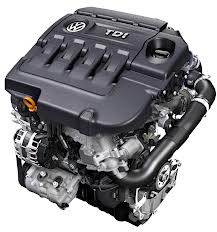
2.0 TDI engine
The 2.0 TDI engine was a replacement for the popular and acclaimed 1.9 TDI engine. And although much more contemporary than its predecessor, the general opinion is that it is much less durable.
Material savings and technical errors - are the main reasons for most of the problems faced by 2.0 TDI engines. The engine was introduced in 2003 Vw Touran and successively continued the representation in most models Volkswagen and later came under the guise of some Mitsubishi, Jeep and Dodge. Undoubtedly a popularity equal to its predecessor, the 1.9 TDI, unfortunately, did not inherit durability from its predecessor.
The 2.0 TDI PD is offered in different versions with 8 valves generating engine power of 136 - 140 hp and 16 valves from 140 to 170 hp. The 2.0 TDI was available in versions equipped with a soot particle filter. Different engine models differ in the solutions offered, which is caused by constant modernizations in connection with increasingly strict standards for exhaust gases. The 2.0 TDI PD engine is praised for outstanding performance and low fuel consumption. The engine is mounted in a wide range of popular Vw Group models.
In 2007, Volkswagen decided to introduce a much more modern solution using the Common Rail system. As it turned out, this decision brought benefits to these engines, which are characterized by a much better working culture. Compared to its predecessor, it has significantly increased the number of available options - the new units can generate power from 110 to 184 hp and is equipped with four valves per cylinder. Common Rail engines replaced earlier versions of the 2009 injection system.
The reliability of the 2.0 TDI engine is not the best. Most problems start to appear after 100000 - 120000 km. Plenty of problems are in line with those from which the most modern diesels suffer, but there are also those that are typical of the 2.0 TDI versions. Shooting of cylinder heads in the 16-valve version. Vw is confident that it will deal with this problem at the end of 2006, but there are also younger cars with this type of problem.
Another typical issue of the 2.0 TDI is the problems with the oil pump, in both versions, in the case of the oil pump version with the chain, the chain is stretched, and in the case of the hexagonal shaft version, the hexagonal shaft is rounded off. It is suspected to be the cause of the pump problem, which is also driven by the balance of the motor shaft, which creates the main load. Symptoms of an oil pump failure are: lack of lubrication, ignition of the oil pressure lamp on the instrument panel and rattling from the crankcase (for chain version).
Symptoms of rough engine operation, loss of engine power, engine with pump-nozzle injection system. Nozzle failure is most often a problem, requiring repair or replacement of the nozzle. There are two types of injection units - Bosch and Siemens.
Motor head
Symptoms of coolant loss, coolant loss intensity increases, white smoke from exhaust after cold start. Cracked engine head, replacement required.
Turbo compressor
Symptoms of excessive combustion of engine oil, engine oil in the intake manifold, loss of power, noise (specific "whistling"), smoke. Turbine overhaul required.
Hydraulic hoists
Symptoms of loud and uneven camshaft operation (especially at standstill), loss of power.
Hydraulic lifter replacement required.
Floating flywheel
Symptoms of noise when the engine is running on the back, clutch vibrations. Float clutch replacement required.
The 2.0 TDI engine has many different types, each type has its own designation. It is recorded in the service booklet and also affixed to the identification sticker, which is usually found in the spare wheel in the boot. The BKD engine, fitted in a number of different models of the Audi A3 II generation, the Škoda Octavia II gen., Is the best recommended. Seat Leonie II gen. or Golf V. And the opinion is that the worst 2.0 TDI engine of the BKP mark is built into the Passat B6.
Also of higher quality are the engines after 2007, which eliminated some of the shortcomings of the 2.0 TDI engines.
Recommendation of similar texts:

Hi there, I am Mladen and I am an auto enthusiast. I started this blog years ago to help like minded people share information about latest cars, car servicing ideas, used car info, exotic cars, and auto technology. You will find helpful articles and videos on a wide variety of cars - Audi, Mercedes, Toyota, Porsche, Volvo, BMW and much more. Ping us if you have anything cool to share on latest cars or on how to make older cars more efficient, or just want to say hi!

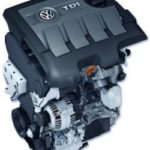

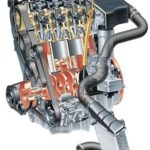
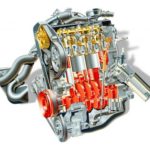
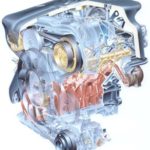
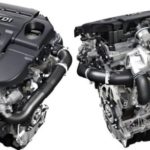
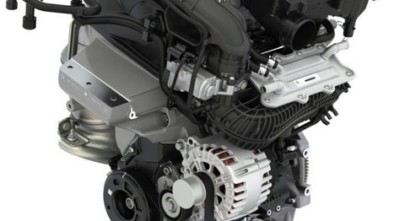
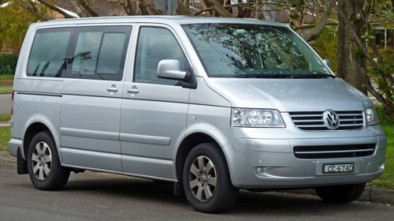
The worst nonsense on these engines 2.0 tdi is a long oil interval of 30000 to 40000 klm.longlife.I change my oil every 10000 klm on my car.and all the filters.no problems I have no tread on almost 300 thousand.30000 thousand is full oil is diluted to a larger the temperature is even worse, because all its lubrication properties are weakened. The other thing is to add a sudden throttle when the engine is cold.and to shut down the engine after a long journey.the best wait is 1 minute. for pd synthetics i personally pour mobil 505.01w5.for pd motors synthetics.nikvi never have problems with nozzles or turbo or pump.every other tank saspem 30dc. .aaaaaaaaaaaaaaaaaaaaaaaaaaaaaaaaaaaaaaaaaaaaaaaaaaaaaaaaaaaaaaaaaaaaaaaaaaaaaaaaaaaaaaaaaaaaaaaaaaaaaaaaaaaaaaaaaaaaaaaaaaaaaaaaaaaaaaa. 2.5 in cold weather it kills both the turbo and the pump and the camshaft. otherwise it would never run away from that 300 tdi engine.8 valves the engines heat up much more and it is best when it is warmed up to drive it at higher rpm because its intercooler remained the same as in the previous models so the head gets weaker and cooler. the compressed air. the thermostat is a little reworked to let the water circuit at 10 to 40c it doesn't matter that the switch fires the fan. but the water passes through the cooler before and the air itself cools and the engines go without error at 2.0 thousand. alone in pasat 16 that engine with 60 thousand when we solved his thermostat. in this way. the measuring probes work only at a heat of 70c so that at 300 or 6c.there are no mistakes.prijavite.agr valve in the back is open returns gases back to the intake air while the engine is cold. This makes it easier for the engine to warm up. And it also produces less toxic gases because the catalyst is not in operation while the engine is cold, but for some specific temperature the catalytic reaction. For this, agr. and not knowing what the mucus is on the engine. even then the engine is perfect without blemish if handled properly. and changes to some factory defects. Or consult the right masters when choosing engine oil and other necessities.
Congratulations . You know a lot about tdi pd engines and I think a lot of that is true. I have a TDI 2009 CR with 170 horses. The engine runs like a swiss watch.
you are very smart, you fucked up the German engineers, where you learn all that by keeping goats.
Expert Edine, honestly man wrote well
Which version is in the Mitsubisi Grandis, I'm seriously warmed up for that car?
People run from a 2.0 tdi engine that makes the head ache. I have personally experienced on my skin starting from nozzle and furthermore it spends a little really on the heart-shaped madman.
I personally have a passat b6 2005 god. 2.0tdi BKP engine type, never have any problems on the clock is 270000 thousand, regularly serviced and no problem
I have a golf V 2.0 tdi, just a regular service, pour oil and drive very satisfied, what a 1.9 tdi….
You can't say what kind of 1.9 tdii! He is a mother for every 2.0 tdi! I don't say anything for 2.0 tdi, but 1.9 is a much better engine than 2.0 !!! CUVENI 1.9 TDI! EVERY CAR YOU MAINTAIN REGULARLY AND YES! POZZZ!
When did Common Rail 2.0 Tdi engine start production?
Does anyone know exactly what to tell me?
Thank you
i have golf plus 2.0 tdi (2005 year) BKD 245000km, only pours and drives, oil change every 10000km, castrol 5w30 longlife, works as a singer, oil and water, or drops to consume.
amazing what myth has been created about these "problematic" 2.0 tdi engines, so people run away from them and take the graves of 1.9 tdi, not knowing that these same 1.9 tdi engines have their problems also, even worse than on 2.0, mostly these "newer" 77kw from 2005-2009
so, whoever takes the 2.0 tdi should just look at the revision of the engine head "C" (because that was their biggest problem, which they solved in late 2005) and that the car is regularly maintained, and only gas.
Mitsubishi Lancer 2009 has a built-in vw engine 2.0 diesel but I do not know which version of the above so if anyone can tell me something about it. Thank you
@Edin "the agr valve is idle when it returns the gases back to the air intake while the engine is cold. This way the engine heats up more easily"
Total nonsense, on the contrary, AGR returns cooled exhaust (150-200C) for the reason that the temperature in the cylinder is reduced!
Now many will wonder how the temperature will go down and bring the exhaust back, easily, more exhaust = less air, less air = less fuel, the result is a lower temperature, of course at the cost of less power.
All this is done to reduce the emission of harmful nitrogen oxides, which are produced by incomplete combustion at high temperatures.
Just to mention, the AGR is only active at lower engine load.
I had an audi a3 engine 2.0 tdi
He had 2 cams the master told me it was a terrible engine. However, every single time my sar.hu.sar car never got late and didn't break down. I dreamed 300 thousand miles
I don't think I'll ever have a car like that
I have an audi a4 b8 avant 2015 163 ps, and when I turn off the gas from second to third or third to fourth I hear some weird sound like piu, 2 secs roughly, it seems like the engine is hot, does anyone have experience, thanks!
I have an audi a6 2.0tdi, but the car doesn't pull and I turn on the heater and check the lamp and I don't smoke
Did you solve the problem I drive the same car with the same mark and I have the same problem. If you have solved it please tell me the cause.
Brte so the same problem, from the second to the third and turn on the heaters and turn off the turbines. Let's put it to diagnostics, turn off the errors and it goes again for a while..everything is serviced in full but this happens non stop. I have to drive it for three or four thousand turns so as not to turn on the error and turn off the tubes. what should I do, where should I make it service ... give me a suggestion ..
I have a golf 5 2.0 tdi bkd 2006-2007, it has 263000. the oil pump broke down, a month before the car pump failed, at every stop at the traffic light, it worked unstable for 2 seconds and returned to normal. The master replaced my pump and now after that I have this problem again, but not constantly, maybe at 5, 6 stops at the traffic light, a problem appears once. The question of whether they installed a bad pump or a problem with the nozzle
Must pump, set of cables in the motor and erg valve together….
Every part of Edina on an exhaustive experience, everything is exactly like that. The long interval is the killer of all engines and especially turbo diesel. Come on up in Europe, Germany, Austria, Norway… up there is oil and fuel of good quality, unlike ours which is the worst in the world. And in Germany I would never change to 30.000 and not here. I change here at 8.000 km. The most. Just to greet this wma and tell him to go somewhere to take his temperature if he doesn't have the right to see a psychiatrist because the complex kills you. kevu. Hahajaj.
I agree with most of what has been written, with a lot of people comparing this 2.0 with engines 30g ago, of course it is better than 1.6td from golf 2 today all engines exceed more than 300 tkm, but from experience with vw 2.5 and 2.0 2009 and 2013 can say that these engines are far worse in durability than the average, while the rest of the car, like any VW, very well fulfills its purpose, cheap maintenance of mediocre comfort, without sporting ambitions. If I compare them with other similar engines (10 cars in the house), they have low fuel consumption, CR is quite quiet, PD does not, oil consumption speaks of the condition of the engine and is too high after 150tkm, 2.0 170hp from another manufacturer at 350tkm still withstands an interval of 35tkm without refilling with all the components being factory, both VWs are open at approx. 250. So it's not that bad compared to the 1.6td from the Golf 2, but far worse than today's engines
To share my experience, 2.0 engine tdi140.ks, with Turana, 10 years, I drive, exceeded 49000. I still do not consume oil, I only pour oil castrol 5 / 30.c. Mark, because it has a dp filter. I have a special specific driving mode , a little sharper at certain moments,… The only malfunction, let's call it a malfunction, I had with a cam and a lifter, at 45000 km, I felt it in time and fixed it. I think it's a pretty good engine, "engine",
Golf 5 2007-2008
1.9 105HP or 2.0 140HP
??
Audi A4 B7 2007 god. 2.0 tdi 170hp car does not have power up to 1800 rpm, maximum speed up to 160kmh, at low temperatures it is harder to start and extinguish a couple of times until it breaks (on warm days it starts perfectly). There are no diagnostic errors.
one question… what are your experiences with b8 engines? it stands outside and when it starts in the frost, the engine can be heard to work a little louder, and even though it is standing in place, it revs up to 1000. after that, everything normalizes while driving. is this normal or is something wrong?